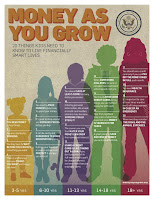Financial Wellness
By the end of 2013, we would like to pay off over 20% of the current outstanding debt on our house. To do this Anna and I will continue to work together with our finances find more opportunities to earn and save more money. We have also considered looking at selling our house, since we probably have a larger house then we really need.
UPDATE: Anna and I are still on pace to surpass this goal in 2013. We have knocked another month off our debt free date and are now on pace to be debt free no later than June 1st, 2016!Occupational Wellness
One of my goals this year is to have portfolios prepared for every one of my students showing their specific progress based on the Humanities IB-MYP Objectives for 6th grade. In order to do this, I will continue to stay organized and make sure to be given specific and meaningful feedback on all major assessments throughout the year.
UPDATE: I have completed this goal and will not be adding another goal in this area this year so I can concentrate on the other areas.Physical Wellness
I have many physical wellness goals this year.One of my goals is to complete the entire week of RAGBRAI in July.By the end of 2013 I would like to be back at my pre-broken foot weight.
UPDATE: I have actually taken steps backwards on this goal and this month likely will not help as I am traveling most of it. I still will be making this a goal and doing the best I can during the month of July.Environmental Wellness
One of my goals in 2013 is for William to complete the "Leave No Trace" requirements for cub scouts to learn the importance of taking care of our environment. We will work with William to learn to be intentional with doing things outdoors and indoors to help protect our planet.
UPDATE: William completed this achievement and got his award at the June pack campout. I will not be creating another goal in this area to be able to concentrate on the other goals.Intellectual Wellness
My goal for 2013 is to read at least 100. As Charlie Jones said, "Five years from today, you will be the same person that you are today, except for the books you read and the people you meet." I want to read some good books, so that I can be a better person five years from now.
UPDATE: I have currently read 46 books in 2013 and am working on several other ones. I am currently three books behind pace to make my goal, but hope that July helps me catch up and get ahead while on vacation.Emotional Wellness
I will continue to blog about my throughs and feelings at least once a week throughout 2013. I will also post additional content on my blog's facebook page.
A friend shared a great idea on facebook that our family has decided to put into action in 2013. We will be keeping a "Good News Jar" to write notes of all the good things happening this year to open up and read on December 31st, 2013.
UPDATE: I will continue working on these goals even while traveling.Spiritual Wellness
After finishing reading the Bible again in 2012, I plan on starting over in 2013. In addition to reading the Bible, I will be using Tony Dungy's The One Year Uncommon Life Daily Challenge for my personal quiet time in 2013. Another spiritual wellness goal of mine for 2013 is to begin weekly devotionals as a family at least 5 days a weekusing Bruce Wilkinson's Family Walk.
UPDATE: We completed our marriage small group study in June. Anna and I are working on a couple devotional together over the phone while I am away and in person when possible this month.


























